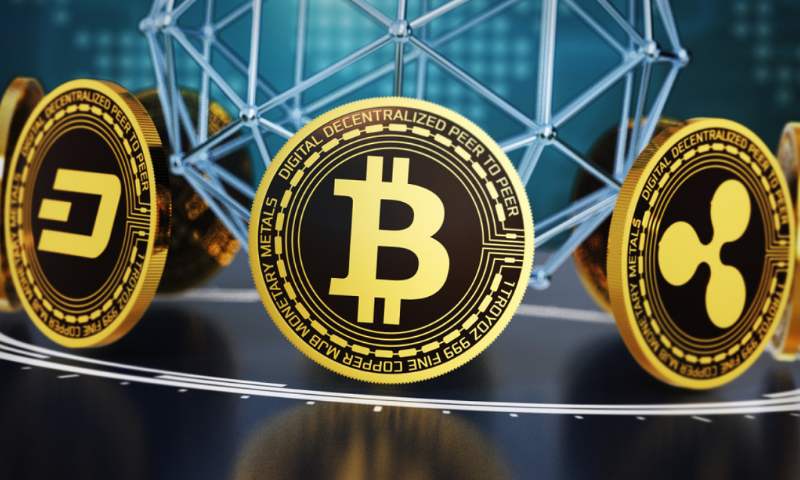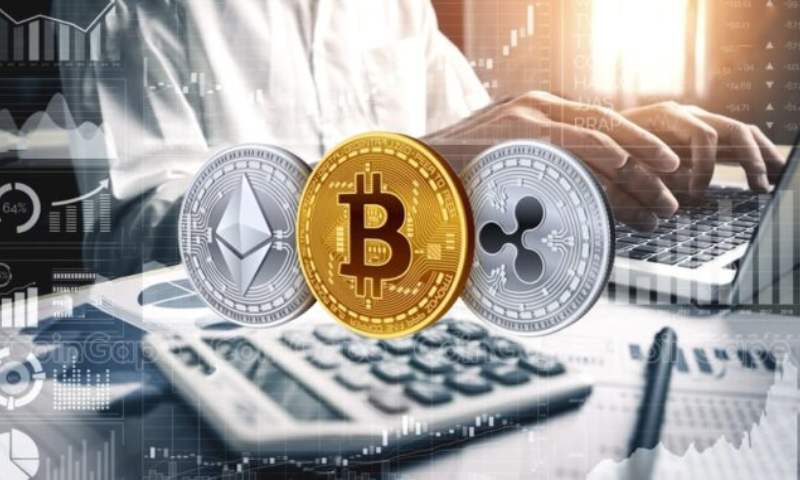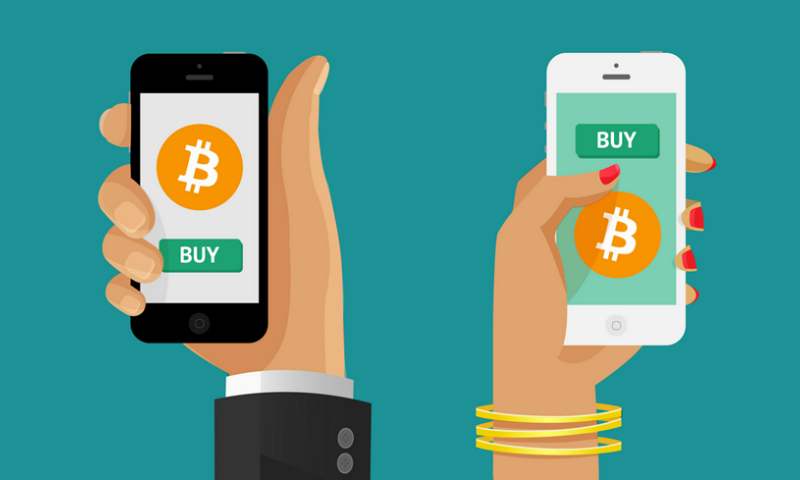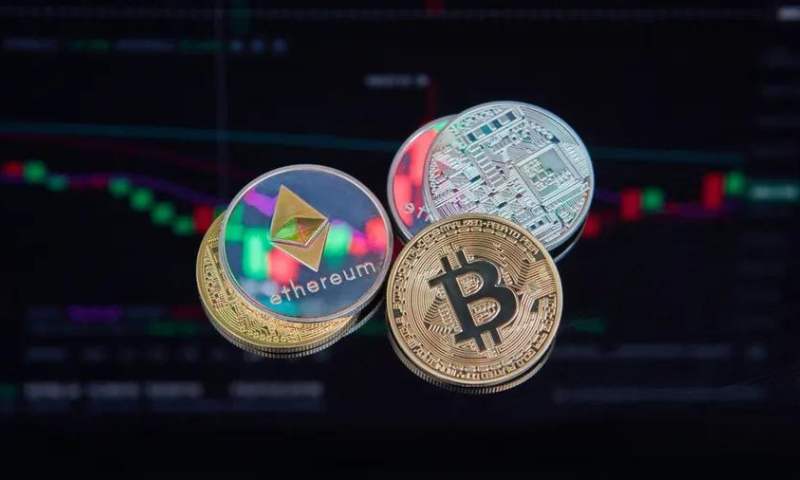Cryptocurrency Essentials: Smart Beginner Tips Before Investing
Let’s cut to the chase: Getting your feet wet in the world of digital currency demands that you grasp a handful of critical insights. Things to know before buying cryptocurrency for beginners are not just about jumping on trends; it’s about being smart with your moves. Think of this as your compact guidebook, your treasure map to navigate the enticing yet intricate terrain of cryptocurrency. From unraveling the jargon to calculating the risk and reward, I’ll walk you through the must-haves of this booming digital gold rush. Decode the blockchain basics, figure out your financial limits, pick the right platforms, and connect with the crypto community—all without tripping over complexities. Ready to become a savvy crypto investor? Let’s get started.
Grasping the Basics: Starting Your Crypto Investment Journey
Understanding Blockchain Technology Fundamentals
Blockchain is the heart of all cryptos. It’s like a digital ledger. Think of it as a chain of info, pinned together, block by block. Every block holds a bunch of transactions. Once a block is full, it links to the next one. This makes a long, unbreakable chain.
All data in the blockchain is public. It means you, me, anyone can look it up. But, it’s also secure; no one can change it once it’s there. This is why people trust blockchain. It keeps your coin info safe from fakes.
Knowing Cryptocurrency Terms and Concepts
Now, crypto can have some puzzling words. Let’s clear those up. First up, “altcoin.” It’s any coin that’s not Bitcoin. Bitcoin was the first, so all others get this name. Think of Coke and other sodas. Bitcoin’s Coke, all others are like Pepsi, Sprite, and so on.
Market cap, or capitalization, is next. It’s the coin’s value times how many exist. So, a coin worth $1, with a million of them, has a $1 million market cap. This helps you see how big a coin’s role is in the market.
Then there’s “wallet.” No leather here, though! A wallet’s where you keep your crypto. There are two kinds you should know. “Hot wallets” are online, easy to use, but less safe. “Cold wallets” are offline, super safe, but less handy.
Risks are big in crypto. Prices can swing like crazy. So, watch the market, learn, and don’t bet the farm. Get news from places known for good crypto info. This helps you not fall for fake news.
You’ll hear “ICO,” or Initial Coin Offering. It’s how new coins get funding. It’s risky, like betting on a new brand of soda. Could be the next big thing, could fizzle out. So, do your homework before you jump in.
We can’t forget “DeFi,” short for Decentralized Finance. This is a new way of doing finance, all built on blockchain. No banks here. It’s more open but riskier. Be sure you know what you’re doing.
“Private keys” are also a must-know. Keep them like a treasure; they open your coin stash. If someone else gets them, your coins could be gone for good. Think of it as the key to your online money vault.
So, start slow. Learn these terms and ideas one at a time. Talk with folks online who know their crypto stuff. And never stop asking questions. Each answer helps you be a smarter crypto buddy.
Always remember! This world changes fast. What’s true today might change tomorrow. Keep up with the latest, and you’ll do just fine. Welcome to the journey, and let’s make it a great one together!
The Financial Groundwork: Preparing for Your First Purchase
Determining Investment Size and Budgeting for Crypto
First, decide how much money you can invest. Think about what you can afford to lose. It’s a key step in smart money moves. Crypto can be up one day, down the next. So, start small if it’s your first time. Let’s say you have $1000 ready to go. Don’t drop it all in at once. Try using just a part of it first. This way, you can learn without big risk.
Next, we dive into budgeting. Split your money smartly. Let your bills and needs come first. Then, whatever you have left can go to crypto, if that’s what you wish. Always stick to this budget. It’s easy to get swept away by the hype. But your rent won’t pay itself. If you protect your needs, you can invest with a cool head.
Assessing Cryptocurrency Risks and Potential Returns
Think hard about risks. In crypto land, coins come and go. Prices can jump or crash fast. Learn all you can about any coin you want to buy. Look at how long it’s been around. Check its highs and lows. Ask, has it stayed strong in tough times? It’s real homework. But it can save you a lot of heartache.
High risk can mean high returns. But it also can mean big losses. Balance is the key here. You might not get super rich quick. But you also won’t lose all you’ve got. A steady plan can win the race.
Ask yourself, what’s my end game with crypto? Do you want a quick win? Or are you in it for the long haul? Long-term can mean less stress. You can ride out the wild price waves. And remember, history can teach us a lot. Look at past trends. But know that history doesn’t always repeat itself.
Don’t forget about the outer world. Laws about crypto can change. Taxes on crypto gains are real. Keep an eye on news that may affect your coins. You don’t want any nasty surprises.
In the end, pace yourself. Don’t rush to buy. Slow is often smart. Make sure you know your coins and your plan. Then take your first step with care. Your future self might thank you.
The Mechanics of Buying Crypto: Exchanges, Wallets, and Security
Cryptocurrency Exchange Selection and Trading Platforms
When you start buying crypto, think of exchanges like your crypto shops. They let you buy and sell digital currency. But you can’t just pick any. Some are easy for newbies but may have higher fees. Others offer tons of coins but might seem like a maze. Always check if the exchange is safe and follows the laws.
Safe Crypto Storage Solutions and Understanding Wallet Types
After buying crypto, you need to store it. Enter wallets. They come in two kinds: hot and cold. Hot wallets connect to the internet, like an app on your phone. They’re easy to use but less safe. Why? Because hackers love the internet. Cold wallets don’t need the net. They’re like vaults. Super safe, but not as quick to use. You get a private key for your wallet. Keep it secret. Keep it safe. Lost keys mean lost crypto!
Now, let’s cut the jargon and get real. Exchanges are where your crypto journey takes off. You trade your cash here for Bitcoin or altcoins. It’s best to choose exchanges that are simple, reliable, and secure. Try to find one that matches the effort you’re willing to give.
Don’t rush. Take your time. Pick smart. See which exchanges other folks trust. Look at their fees, too. Some might look cheap but hide fees like sneaky fees on withdrawals. That’s not fun.
For storing crypto, you need to understand wallets. Wallets come in many kinds. Some are as simple as an app (that’s your hot wallet), while others are more like a USB stick (hello, cold wallet). Hot wallets are easier to use but think twice. Would you leave your house key under the doormat? That’s a hot wallet’s risk.
Cold wallets are the heroes here. They don’t invite internet danger. But! They can be clunky. Imagine digging out a treasure chest every time you want to spend a coin. Annoying, right? Well, that can be a cold wallet for you.
Remember that key I mentioned? It’s more than a key. It’s the only way into your wallet. If you lose it, there’s no ‘forgot my password’ option. Your coins could be lost. Forever. Scary thought. So write it down. Put it somewhere safe that you’ll remember.
This wallet talk isn’t just tech babble. It’s your money’s shield. The better your wallet, the safer your coins. Learn these ropes before you start. It’ll save you sweat (and tears) later on.
Oh, and one last tip. Never, ever tell someone your private key. It’s like giving a thief your wallet and saying, “Enjoy!” Keep your head in the game, use strong wallets, and keep those keys super private. Then you’re set to take on the crypto world.
Navigating the Crypto Ecosystem: Regulations and Community Engagement
Regulatory Landscape of Cryptocurrency and Tax Implications
For starters, know this: crypto rules can be tricky. You must get them right. Every country has its own laws for digital currency. It’s smart to learn these rules. This way, you stay out of trouble. How do taxes work with crypto? Well, in many places, you’ll pay taxes on crypto gains, just like with a normal job. Take the IRS in the United States, for an example. They say you must report all gains on your taxes.
The key point here is to research. Find the rules where you live. You can look up websites, chat with experts, or join local crypto groups. They can talk you through the basics. Be extra careful here. Tax mistakes can cost you a lot. And rules change, so stay sharp. Keep your ears open for updates.
Online Community and Support for Crypto Beginners
Now, let’s talk about people. The crypto world brims with groups full of support. These online pals can help you. They were all new once, just like you. They can teach you lots and keep you company. You can find these communities across the web. Think of social media platforms, forums, or chat apps. They’re there, always typing away.
Why join them? They give you real-life tales. They provide tips or warnings. Many are kind and share their own beginner crypto buying guide tricks. They can tell you which cryptocurrency exchange selection worked best for them. They know about safe crypto storage solutions as well.
Furthermore, they help you learn knowing cryptocurrency terms. You’ll understand what DeFi or altcoin means in no time. They also shed light on price volatility and crypto investment warnings. They show you where to find reputable crypto news sources. They’ll guide you through the forest of terms like ICOs and market capitalization in crypto.
Remember, crypto moves fast. Today’s news could be old by tomorrow. Online groups help you keep pace. Plus, hearing about others’ mistakes helps you avoid them. And when you’re ready, they’ll cheer for your first investment.
So, there you go, two big tips for the road ahead. Get to know your local crypto laws. Tax know-how is a must-have. And find your crowd. They’ll be your guides in this thrilling crypto journey.
To wrap it up, let’s go over what we covered. We started by learning the basics of blockchain technology and the key terms of the crypto world. This foundation makes the rest of the journey clearer. Then, we talked about money matters, like how much to invest and what risks and rewards to expect. Remember, never spend more than you can afford to lose.
Next up, we tackled how to actually buy crypto. Choosing the right exchange and securing a wallet are crucial steps that keep your investment safe. Finally, we dived into the rules of the game and the value of joining crypto communities. They can offer support and knowledge as you get started.
My final thought? Jumping into crypto is exciting, but stay smart about it. Learn as much as you can and invest responsibly. It’s your hard-earned cash, and the crypto world waits for no one. So, equip yourself with knowledge, and let’s begin this adventure with confidence. Good luck!
Q&A :
What are the essential factors a beginner should consider before purchasing cryptocurrency?
Before diving into the world of cryptocurrency, it’s crucial for beginners to understand the market volatility, research various currencies, assess the risks involved, ensure secure storage options, and be aware of regulatory changes. Knowing the technology behind cryptocurrencies, such as blockchain, and the basics of cryptocurrency wallets will also be beneficial. It’s advisable to start small and only invest what you can afford to lose.
How does one safely buy and store cryptocurrency as a beginner?
Safety is paramount when buying and storing cryptocurrency. Beginners should opt for reputable crypto exchanges, employ strong passwords, enable two-factor authentication, and consider hardware wallets for enhanced security. Always double-check wallet addresses when making transactions and be wary of phishing scams. Before investing, make sure to understand the difference between hot wallets (online) and cold wallets (offline) for storage.
Can you explain the risks associated with investing in cryptocurrency for first-time buyers?
Cryptocurrency investments come with their set of risks, including extreme price volatility, lack of regulatory oversight, and the potential for cyber theft. Beginners should be aware of the market’s unpredictability and the fact that digital assets are not insured like traditional bank accounts. Additionally, it’s important to conduct due diligence on any investments, as there’s a proliferation of scams in the unregulated crypto space.
What basic steps should a beginner take to start investing in cryptocurrency?
To start investing in cryptocurrency, a beginner should follow these steps: educate themselves on what cryptocurrency is, choose a reputable exchange to buy from, secure a wallet for storing their digital currency, decide on an investment strategy, and stay updated with industry news and trends. It’s also important to understand the ins and outs of cryptocurrency taxes in their jurisdiction.
Why is it important for beginners to understand blockchain before investing in cryptocurrency?
Blockchain technology is the backbone of most cryptocurrencies. Understanding blockchain provides beginners with a better grasp of cryptocurrency security, transparency, and decentralization. Awareness of blockchain mechanisms can aid investors in recognizing the potential and limitations of different cryptocurrencies, enabling them to make more informed investment choices.






